If you’re active on the internet or social media, you’ll know that it is virtually impossible to avoid diet and wellness culture online. Regardless of the platform you’re browsing, every new diet and fitness trend is amplified by a slew of flawless celebrities and “influencers,” hashtags and curated images of food or fitness poses that set the standard for what a healthy, active lifestyle should look like today. If you’re at all interested in losing weight or getting in better physical shape, there is no shortage of diet fads, recipes or workout advice from people who look like they’ve got it all figured out. But is this the advice you should be following?
The internet is great at connecting like-minded people and ideas; if you want to start making positive changes for your health, there is no shortage of online communities or forums that offer support and solidarity from others who share your personal goals or who have already achieved them. However, as with many aspects of social media, there is a thin line between when the content you consume is helpful versus harmful to your well-being. When it comes to online diet culture, it seems that social media primarily serves to stoke body anxiety rather than help you live better.
The Bad Influence of Influencers
In case you’ve been living under a rock, an influencer on social media is a person who has the power, or influence, to affect the purchase decisions of others because of their position or relationship with their audience. Usually, this person has some knowledge or authority over a niche and frequently engages with it to establish credibility. It’s an incredibly effective marketing strategy; according to the influencer platform MuseFind, 92 percent of consumers trust an influencer more than an advertisement or traditional celebrity endorsement.
Celebrities, athletes and models are among the most followed individuals on social media and dominate most people’s social feeds. When these toned, fit notable figures share the foods they eat or the workouts they train with, it sends the message to their followers that they too can look just like them if they just mirror their lifestyle. But recent research says that if you wish to lose weight, you should steer clear from any social media influencer who claims to have the latest diet plan.
A study conducted by health researchers at the University of Glasgow examined the United Kingdom’s nine most popular social media influencers to determine if there was any accuracy to their health or weight loss content. The influencers weren’t named but were selected based on the criteria of having more than 80,000 followers on at least one social media site, verification from at least two social media sites such as Twitter or Instagram, and who also had an active weight management blog. The research team studied the health and diet claims made by these influencers and wanted to see if these claims were transparent, trustworthy, nutritionally-sound and provided evidence-based references.
It may surprise you to learn that of the nine influencers, only one provided accurate and trustworthy information, and not surprisingly, this chosen influencer was the only registered nutritionist with a degree of the lot. More unsettling, five of the influencers presented their opinion as fact or failed to provide evidence-based references to substantiate their claims. When compared against the Public Health England’s daily calorie targets, no influencer met credible criteria.
While celebrities and influencers aren’t inherently trying to misinform their audience, their advice is misleading and could be harmful or potentially dangerous to those following their claims. Many of these influencers do not even follow their own health advice themselves, but still share information beyond their expertise that inspires thousands of individuals to under-eat and over train. The authors of the study recommend that when it comes to weight loss and management, you’re in much better hands with licensed medical professionals.
The Rise of “Clean” Eating
We live in a culture that reinforces the idea that there are “good” foods and “bad” foods, good diets and bad diets. While there are foods that are indisputably better for you than others, using these categorical terms to describe what people consume inserts morality into what you eat. Fatty foods, carbohydrates and processed foods are demonized in our society, and eating these foods can somehow indicate that you lack the willpower or character to make “good” choices.
The clean eating fad came to light around 2007 and, at its simplest, involves eating nothing but “whole” and “unprocessed” foods. It has led to a surge of gluten-free foods, dairy-free milks, and foods labeled with terms like “organic” or “natural.” Countless celebrities promote clean eating, from Gwenyth Paltrow to Tom Brady. But clean eating has ushered in a new extreme movement with the premise that regular food is unhealthy or “dirty,” which, unfortunately, has resulted in a brand new eating disorder: orthorexia.
Orthorexia is an eating disorder centered around an obsession with health, wellness and eating clean, which usually involves food and nutrient restriction. The condition usually starts with rational and clear intentions, such as the desire to be healthier. For example, you may decide to eliminate all foods that contain processed sugar from your diet. But soon, you’re cutting out all foods that contain gluten, all carbohydrates and all dairy products until your diet becomes extremely limited. While you’d think clean eating would optimize your health, it actually does the opposite.
With so many nutrient restrictions, clean eating can result in a lowered metabolism, lowered sex hormones, dry skin, brittle hair, bone loss and cardiovascular problems. Researchers believe orthorexia is the result of western cultural influences regarding body ideals and a fixation on healthy living. They also found that those who had the greatest tendency to display symptoms of orthorexia were those who used Instagram frequently.
How to Break Free From Online Diet Culture
If even A-list celebrities, models and athletes can get caught up in diet culture and disordered eating, how is the average person supposed to discover the right path for eating well and losing weight? If you’re serious about making changes to your health and lifestyle, the best course of action is sitting down and talking with a medical professional. The key to living healthy is moderation, portion control, regular meals and a variety of foods and nutrients.
At Body Symmetry MD, we offer medical weight-loss plans that are physician-guided and tailored to your individual needs and goals. No plans are set in stone, and we will work with you one-on-one to ensure you see the results you want without compromising your health or safety. If you’re ready to break free from harmful online diet culture and lose weight the right way, contact Body Symmetry MD today at 833-789-2639 to schedule your complimentary consultation.





